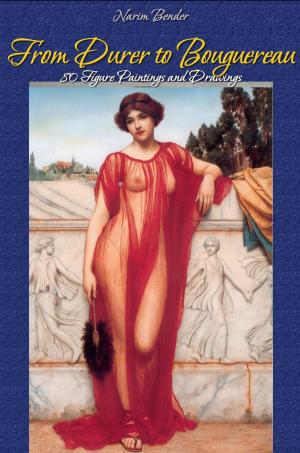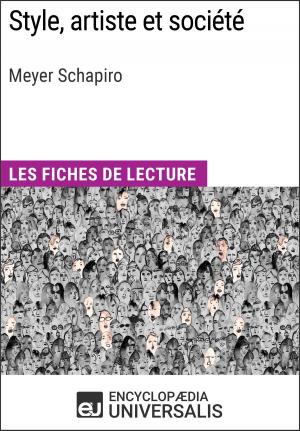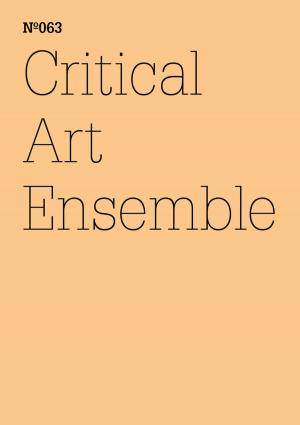Art For Hotels
Nonfiction, Art & Architecture, Art Technique, Mixed-Media, Home & Garden, Crafts & Hobbies, General Art| Author: | Relja & Vida Penezic | ISBN: | 9781450757201 |
| Publisher: | Relja Penezic | Publication: | January 20, 2011 |
| Imprint: | Language: | English |
| Author: | Relja & Vida Penezic |
| ISBN: | 9781450757201 |
| Publisher: | Relja Penezic |
| Publication: | January 20, 2011 |
| Imprint: | |
| Language: | English |
ART FOR HOTELS paints a stunning picture of a migrant mind, through a unique and innovative blend of art and story-telling. Word HOTELS in the title is not used literally but as a symbol of a place where one stays when one is not at home. “A collection of 108 images and 4 written pieces,” explain the authors in the Introduction, “the book is a series of visual and narrative meditations on experiences and states of mind known to most travelers: escapism, exoticism, freedom, joy, discovery, foreignness, strangeness, anonymity, spirituality, cultural isolation, nostalgia, alienation, unease with both familiar and unfamiliar surroundings. In other words, the focus is not on individual actions, historical events, or explanations (although they are mentioned as well), but on how these events and actions are played out in a migrant’s mindset. Neither art nor writing is a direct illustration of the other . . . What unites the visual and the narrative parts of the book is a common theme (migration) and the complex beauty we both find in our subject.” The number of people in the world whose lives unfold away from their original homes is both staggering and elusive. If one counts only those who have lived outside of their native country for at least one year, over two hundred million people in the world are immigrants. Many others stay away for shorter periods and are not included in this statistic. Yet others reside in the host country illegally, so frequently are not counted at all. And then there are those who leave their hometown without leaving their homeland. For example, in the developing world, sixty million people move to cities each year, while in the United States more than sixty percent of adults have lived away from their birthplace at least once. Migrants hail from all social and economic strata and include refugees and diplomats, jet-setters and drifters, business executives and migrant workers, rock stars and illegal immigrants, rich retirees and vagabonds, world-class athletes and starving artists. Some make a home in a new place. Others bide their time at the airports and train stations, in cars, in the loneliness of hotel rooms or guest houses, and in other temporary lodgings and residences. Unsure if home is everywhere or nowhere, they often are strangers in their place of residence, as well as in their place of origin. ART FOR HOTELS is dedicated to all of them. The authors, siblings Relja and Vida Penezic, are themselves migrants. Between them, they have resided in more than a half dozen cities all over the world, including Belgrade, London, Paris, Moscow, Bowling Green, New York City, San Francisco, and Los Angeles.
ART FOR HOTELS paints a stunning picture of a migrant mind, through a unique and innovative blend of art and story-telling. Word HOTELS in the title is not used literally but as a symbol of a place where one stays when one is not at home. “A collection of 108 images and 4 written pieces,” explain the authors in the Introduction, “the book is a series of visual and narrative meditations on experiences and states of mind known to most travelers: escapism, exoticism, freedom, joy, discovery, foreignness, strangeness, anonymity, spirituality, cultural isolation, nostalgia, alienation, unease with both familiar and unfamiliar surroundings. In other words, the focus is not on individual actions, historical events, or explanations (although they are mentioned as well), but on how these events and actions are played out in a migrant’s mindset. Neither art nor writing is a direct illustration of the other . . . What unites the visual and the narrative parts of the book is a common theme (migration) and the complex beauty we both find in our subject.” The number of people in the world whose lives unfold away from their original homes is both staggering and elusive. If one counts only those who have lived outside of their native country for at least one year, over two hundred million people in the world are immigrants. Many others stay away for shorter periods and are not included in this statistic. Yet others reside in the host country illegally, so frequently are not counted at all. And then there are those who leave their hometown without leaving their homeland. For example, in the developing world, sixty million people move to cities each year, while in the United States more than sixty percent of adults have lived away from their birthplace at least once. Migrants hail from all social and economic strata and include refugees and diplomats, jet-setters and drifters, business executives and migrant workers, rock stars and illegal immigrants, rich retirees and vagabonds, world-class athletes and starving artists. Some make a home in a new place. Others bide their time at the airports and train stations, in cars, in the loneliness of hotel rooms or guest houses, and in other temporary lodgings and residences. Unsure if home is everywhere or nowhere, they often are strangers in their place of residence, as well as in their place of origin. ART FOR HOTELS is dedicated to all of them. The authors, siblings Relja and Vida Penezic, are themselves migrants. Between them, they have resided in more than a half dozen cities all over the world, including Belgrade, London, Paris, Moscow, Bowling Green, New York City, San Francisco, and Los Angeles.















